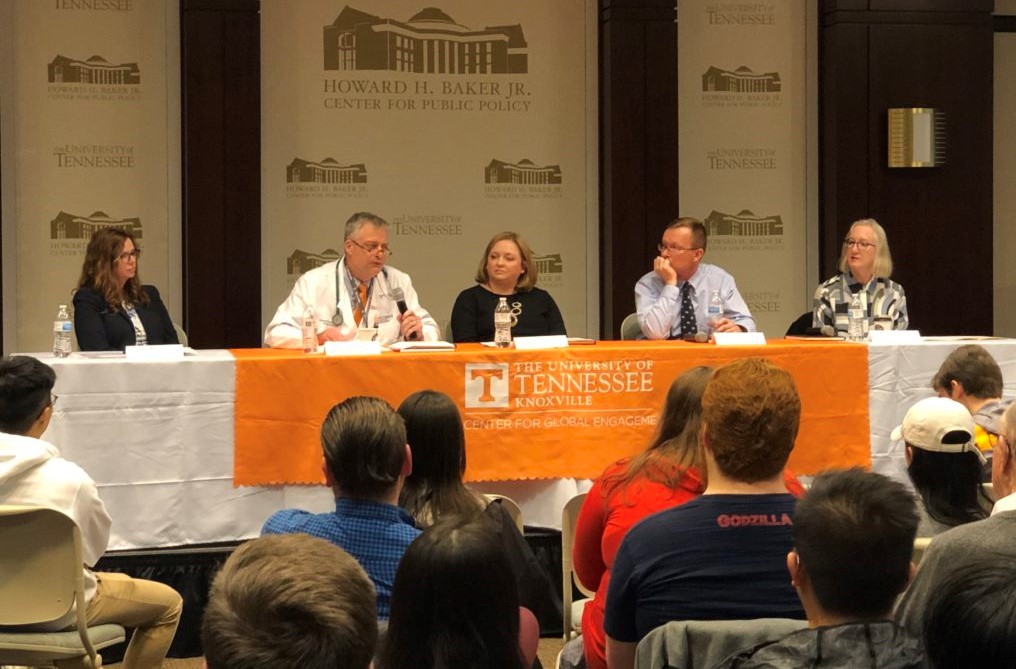 By Hannah Stanley
By Hannah Stanley
Tuesday night, the University of Tennessee Office of Asia Engagement and TN-CHINA Network hosted a forum discussion about the facts and myths regarding the recent COVID-19 outbreak. Five experts elaborated on the impacts of the COVID-19 and the actions the community can take.
“I would speculate that every person in this room has had the coronavirus at some point in their life,” Mark S. Rasnake, program director of the division of infectious diseases at UT Medical Center said.
There are four human coronaviruses that transmit every year, causing the common cold and in some cases, causing more severe infections. While the novel coronavirus has infected more than 75,000 people and killed over 2,100 worldwide, it’s caused far fewer deaths than the flu.
“The biggest myth is that the flu is nothing to worry about, we need to worry about coronavirus,” Rasnake said.
Diseases emerge for very complicated reasons. Quite like the SARS coronavirus that emerged in the early 2000s, the novel coronavirus has caused a lot of disruption and economic impact.
Although the coronavirus is not spreading across the U.S. something else is – fear. Susan Lawrence, UT professor of history, explains how pandemics breed fear. “We’re afraid because of the uncertainty, the lack of knowing what exactly is going to happen, that makes us feel so anxious,” Lawrence said.
Misinformation and rumors spread on social media feed an underlying fear of others “that leads people to feel comfortable about expressing ideas about other people that they normally may not,” Lawrence added. She explained how this could lead to discrimination and a lack of trust in a time that people should depend on political and scientific authorities. “One of the things we know from the past is that when people do keep faith in the authorities and experts, things go much smoother,” Lawrence said.
Along with fear, political decisions cause social and economic disruption. Stevie Hayes, an international operations manager at DeRoyal Industries, Inc. shared how the coronavirus is affecting their business.
Because the products DeRoyal sells are sourced from China, they are having to source from other vendors. Products are being held at ports and are not allowed to leave from China. ‘It’s a growing concern for many of our customers,” Hayes said.
Many businesses are suffering from the same issue. DeRoyal is prepared and has suppliers in other locations. Hayes suggested other business to do the same. “Do not get all of your products from one location. It’s times like this that you have to be prepared.”
It’s too early to tell what the long-term effects of the COVID-19 will be, but it seems to be more contagious than the SARS coronavirus, Rasnake said.
The Centers for Disease Control and Prevention (CDC) notes that “at the time, this virus is not currently spreading in the community in the United States.”
However, there is no doubt that it is affecting the economy and society. Panelists suggest, rather than lashing out from fear and distress, this is a time for “our community and country to come together and support the people and businesses who need our help.”
—
CONTACT:
Rachel Rui jrui@utk.edu